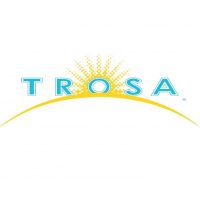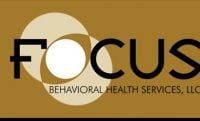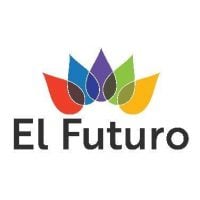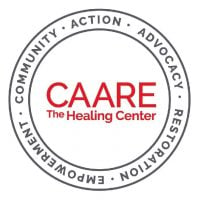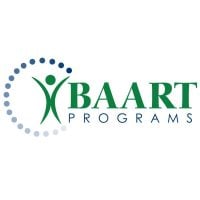TROSA
Drug Rehab Center in Durham, North Carolina
TROSA is a SAMHSA accredited drug rehab in Durham, North Carolina founded in 1994 which offers treatment for substance abuse and mental health issues with multiple levels of care, including detox and inpatient services, and accepts private health insurance.
About This Durham, NC Facility
Triangle Residential Options for Substance Abusers (TROSA) is an innovative, multi-year residential program located in Durham, North Carolina. Founded in 1994, TROSA enables substance abusers to become productive, recovering individuals through comprehensive treatment, work-based vocational training, education, and continuing care.
TROSA's commitment to the community has been recognized nationally, regionally, and locally. The program offers a unique approach to addiction recovery, combining treatment with practical skills development.
TROSA focuses on treating individuals struggling with alcoholism, opioid addiction, substance abuse, drug addiction, and mental health issues. The facility provides a supportive environment for those seeking to overcome their addictions and rebuild their lives.
- Comprehensive treatment addressing substance abuse and mental health
- Work-based vocational training to develop practical skills
- Continuing care to support long-term recovery
- Four social enterprises: moving & storage, lawn care, thrift store, and tree lots
TROSA offers a range of services, including detox, drug rehab, dual-diagnosis treatment, aftercare support, and both inpatient and residential levels of care. Accredited by the Substance Abuse and Mental Health Services Administration (SAMHSA), TROSA is dedicated to providing high-quality addiction treatment tailored to each individual's needs.
North Carolina faces a significant opioid addiction crisis. TROSA addresses this issue by providing comprehensive treatment, including detox and dual-diagnosis care, along with vocational training and aftercare support to promote long-term recovery.
TROSA is ideal for individuals seeking a supportive, long-term residential program that combines addiction treatment with practical skills development to achieve lasting sobriety.
Genders
Ages
Modality
Additional
Accreditations
SAMHSA
Conditions and Issues Treated
Rehab centers exist in Durham, NC to help individuals bounce back from substance abuse, which is an umbrella term for drug and alcohol addiction. Drug addiction refers to the use of illegal drugs and improper use of prescription drugs. Centers like TROSA provide individuals a chance to access individual and group therapy that can be monumental for recovery.
Substance abuse includes all problems that stem out from using various psychoactive substances. It is also a diagnostic term used by Diagnostic and Statistical Manual of Mental Disorders (DSM-IV) to define the mental and physical impairment or distress caused by misuse and overuse of certain substances in a period of 12 months.
Opioid addiction involves addiction to legal or illegal opioids. It may happen very quickly with any opioid use. Sometimes within a matter of days. Opioid addiction is a known as a high-risk factor for future heroin addiction.
Opioid withdrawal can be extremely uncomfortable and lead the user to continue to use even if they want to quit. Stopping using an opioid requires careful medical observation. Sometimes the withdrawal can persist for many weeks, which can put the user at a high risk for relapse.
It is recommended to receive inpatient treatment and a medically supervised detox like those offered at TROSA in Durham, NC, NC, to manage the withdrawal process while learning lasting tools to maintain recovery. In some circumstances medications can be used to manage opioid addiction.
People with dual diagnosis have coexisting addiction and a mental disorder. 9.2 million US adults had a co-occurring disorder in 2018, so not just limited to North Carolina residents. Best treatment combines medication, psychotherapy (talk therapy), support group, and inpatient rehabilitation. Sometimes, complementary therapies – yoga, massage, and acupuncture – may also be used.
Levels of Care Offered
This center offers a variety of custom treatment tailored to individual recovery. Currently available are Aftercare Support, Detox, Drug Rehab, Dual-Diagnosis, Inpatient, Residential, with additional therapies available as listed below.
Detoxification is a process that allows the patient to stop using opioids without experiencing severe withdrawal symptoms. This can be necessary for those who have been addicted for a long period of time or who are struggling with chronic pain.
During this process, addicts will receive medication and psychological support from doctors and other medical professionals until they can control their cravings.
Inpatient rehab is intended to treat severe addictions and co-occurring disorders. The length of stay in North Carolina varies from four weeks to six months according to the individual needs. Inpatient rehab ensures that the patient stays in a substance-free environment at TROSA.
Residential treatment programs are those that offer housing and meals in addition to substance abuse treatment. Rehab facilities that offer residential treatment allow patients to focus solely on recovery, in an environment totally separate from their lives. Some rehab centers specialize in short-term residential treatment (a few days to a week or two), while others solely provide treatment on a long-term basis (several weeks to months). Some offer both, and tailor treatment to the patient’s individual requirements.
After treatment, addiction treatment can be frightening for newly sober people. Aftercare support provided by TROSA is designed to give resources and help on a continued basis. It can involve finding housing in and around North Carolina, setting up 12-step meeting groups, continued medical monitoring, and counseling.
TROSA‘s Therapies & Programs
Individual therapy aims to identify the core issues that would have led the patient to substance abuse and address the root cause effectively. Patients find the therapist as a person who they can trust. It helps them to open up and discuss personal and sensitive issues, which they may not be comfortable discussing in a group.
Group therapy happens at TROSA in a controlled group environment, as opposed to a one-on-one setting. It supports Durham, NC patients’ recovery by offering a sense of comfort and letting them know that they are not alone. Through shared conversations, patients also learn to develop faith and understanding and gain insight on their addictions.
Unresolved trauma is often a key reason why many patients resorted to substance abuse. Trauma therapy refers to treatment wherein specialist therapists help the patients to resolve the trauma that led the patients to substance abuse. The trauma could be physical abuse, sexual abuse, war, natural disasters, divorce, accident, loss of a loved one, etc. Thinking of these traumatic events causes emotional disturbances like anxiety, depression and results in addiction. If trauma is the primary cause of substance abuse, then both issues must be addressed. Otherwise, there is a risk of relapse. Trauma therapy also improves the cognitive functions and provides long term benefits.
Dialectical Behavior Therapy (DBT) is an improved version of Cognitive Behavioral Therapy (CBT). DBT is a treatment of choice for people suffering from self-harming behaviors characterized by cutting and suicidal thoughts or inclinations.
This treatment is developed to help individuals recognize their thought patterns, behaviors, and feelings. It has demonstrated its effectiveness for people that are finding it difficult to control their emotions and urges. Conditions such as obsessive-compulsive disorder and borderline personality disorder also benefit from DBT as it imparts individuals stress-management techniques and enhanced self-esteem so they can sustain their sobriety by reducing the impact of triggers and out-of-control emotions.
Cognitive behavioral therapy (CBT) is a way of addressing concerns through talking. It can be used in individual counseling sessions. Talking through issues with professionals at TROSA can identify sources of discomfort or unhealthy thoughts. It is a way of learning about yourself and your individual perceptions. CBT is a healthy way of addressing some behaviors which may be bringing unintended consequences in your life.
Contingency management is a way to help motivate someone to remain substance free. It is a process of rewarding positive choices and good outcomes. As humans we are wired to recreate experiences that lead to positive feelings. Through this method incentives are used for completing positive steps towards a sober life. This may be a reward for attending meetings, remaining sober or for employment goals.
Payment Options Accepted
For specific insurance or payment methods please contact us.
Is your insurance accepted?
Ask an expert, call (888) 674-0062
Additional Details
Specifics, location, and helpful extra information.
Durham, North Carolina 27707 Phone Number(919) 419-1059 Meta DetailsUpdated April 15, 2024
Staff Verified
What else do people call TROSA?
People have occasionally also searched for “Triangle Residential Options for Substance Abusers in North Carolina”
Patient Reviews
There are no reviews yet. Be the first one to write one.
Durham, North Carolina Addiction Information
North Carolina ranks 29th in the nation for overall substance abuse. Many of the drugs abused in the state are illicit, and many of these are opioids. Prescription opioids are readily available due to the high rates of medical workers prescribing them. The number of prescriptions has increased tenfold since the 1980's. Opioid overdoses are the most common type of death in North Carolina.
Over 8% of the population in Durham abuses drugs, and this number continues to rise. Prescription opioids, heroin, and cocaine are the most commonly abused drugs in the city. Marijuana is also a problem, with many people using it as their first drug. About 26% of HIV/AIDS cases are attributed to injection drug use. Local officials have started to offer various programs to help those affected by addiction.
Treatment in Nearby Cities
- Ahoskie, NC (110.6 mi.)
- Jackson, NC (88.7 mi.)
- Frisco, NC (192.4 mi.)
- Mocksville, NC (91.7 mi.)
- Swannanoa, NC (196.6 mi.)
Centers near TROSA
The facility name, logo and brand are the property and registered trademarks of TROSA, and are being used for identification and informational purposes only. Use of these names, logos and brands shall not imply endorsement. RehabNow.org is not affiliated with or sponsored by TROSA.
